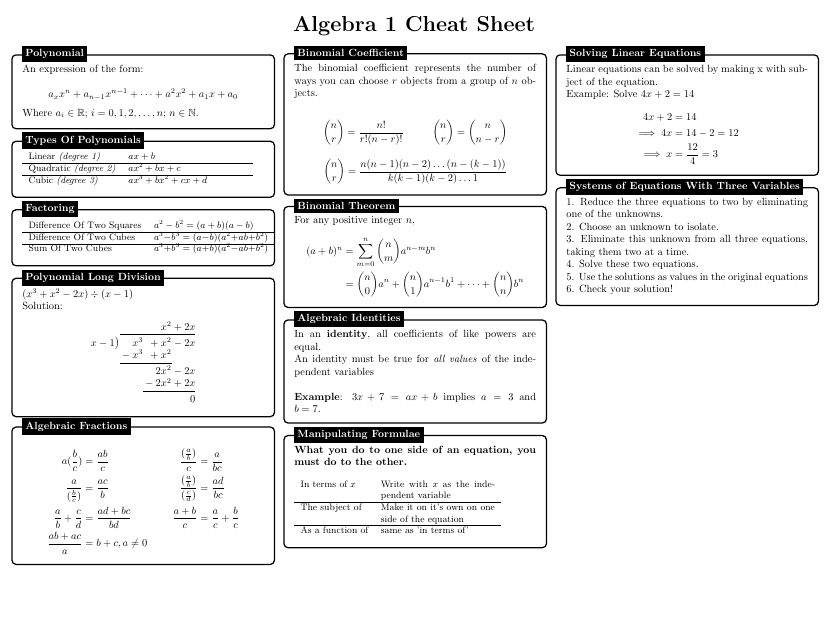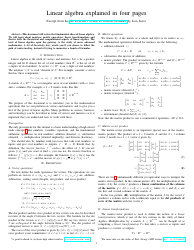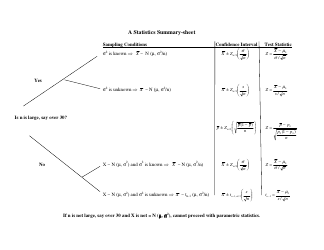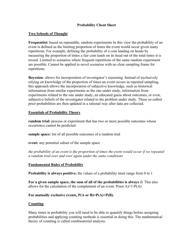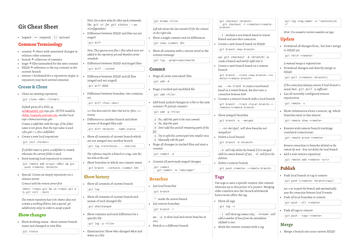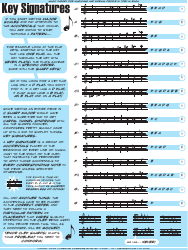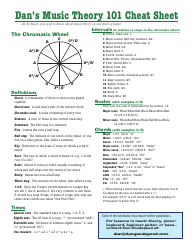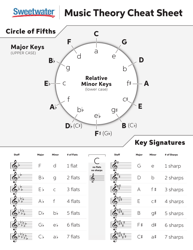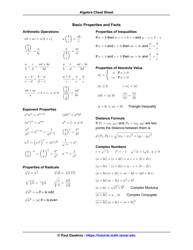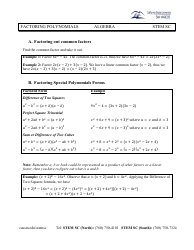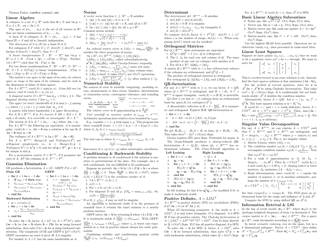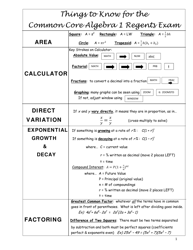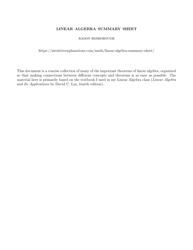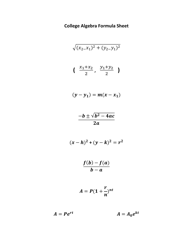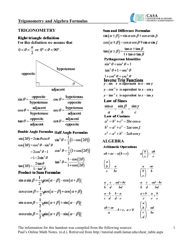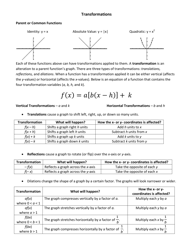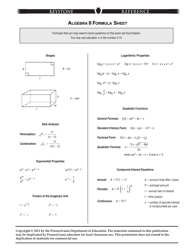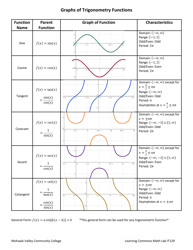Algebra Cheat Sheet - Theory
An Algebra Cheat Sheet - Theory is a document designed to provide a concise summary of the fundamental concepts, formulas, and principles in algebra. It is a handy reference guide for students and individuals studying algebra, helping them understand and apply algebraic concepts more easily.
FAQ
Q: What is algebra?
A: Algebra is a branch of mathematics that deals with symbols and the rules for manipulating those symbols to solve equations and analyze mathematical relationships.
Q: What are variables in algebra?
A: Variables in algebra are symbols that represent unknown values or quantities in equations and expressions.
Q: What are coefficients in algebra?
A: Coefficients in algebra are the numbers multiplied by variables in terms or expressions.
Q: What is an equation in algebra?
A: An equation in algebra is a mathematical statement that asserts the equality of two expressions.
Q: What is a linear equation?
A: A linear equation is an equation in which the highest power of the variable is 1.
Q: What is a quadratic equation?
A: A quadratic equation is an equation in which the highest power of the variable is 2.
Q: What are the properties of equality in algebra?
A: The properties of equality in algebra are: reflexive, symmetric, and transitive.
Q: What is the distributive property in algebra?
A: The distributive property states that multiplying a number by a sum is the same as multiplying the number by each term in the sum and then adding the products.
Q: What is factoring in algebra?
A: Factoring is the process of breaking down an expression or equation into its simplest form by finding the common factors and simplifying.
Q: What is the order of operations in algebra?
A: The order of operations in algebra is the sequence of steps to follow when simplifying expressions: parentheses, exponents, multiplication and division (left to right), addition and subtraction (left to right).
